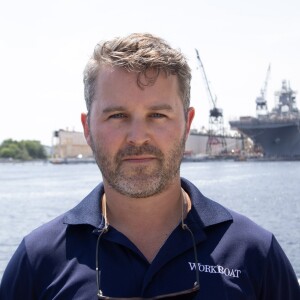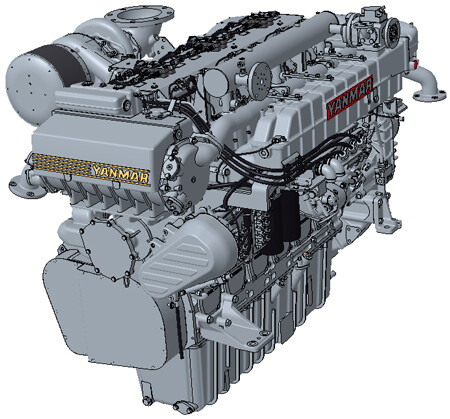Yanmar Power Technology (YPT) is spearheading the development of a hydrogen fueled, 4-stroke, high-speed engine for power generation on coastal vessels in Japan. The endeavor is part of the Nippon Foundation’s zero-emission ship demonstration experiment. The engine operates on hydrogen, emitting no CO2 during combustion.
In parallel with the hydrogen engine development, YPT is also collaborating on the creation of a hybrid electric propulsion vessel compatible with hydrogen engines, integrating hydrogen engine generators with batteries. The vessel design integrates a container unit-type hydrogen power generation system on its upper deck. Shipping company Uyeno TransTech Co. Ltd. is responsible for the vessel’s development and construction.
To support the shift towards zero emissions in maritime operations, YPT aims to develop a pilot ignition engine utilizing a small amount of pilot biofuel and hydrogen co-combustion, alongside a spark ignition, hydrogen-only engine. Onshore verification tests are slated to begin in 2024 using a 6-cylinder hydrogen engine with pilot ignition, with verification operations expected to start by 2026. YPT will conduct onshore verification tests using the spark ignition hydrogen-only engine.
By approximately 2030, they aim to achieve zero emissions for coastal vessels by promoting the adoption of hydrogen energy-based propulsion systems. In 2021, Yanmar Power Technology, in collaboration with Kawasaki Heavy Industries and Japan Engine Corp., established a consortium of Japanese engine manufacturers to jointly develop hydrogen-fueled marine engines for ocean-going and coastal vessels. The consortium aims to establish a dominant position in hydrogen engine technologies.
Last year, YPT introduced its maritime hydrogen fuel cell system. In November, the company delivered its newly commercialized system to the passenger ship Hanaria, operated by MOTENA-Sea. The vessel operates with an onboard electric propulsion system utilizing generated electricity. YPT oversaw the vessel’s comprehensive power system design, incorporating two hydrogen fuel cells, batteries, biodiesel generators, a power management system, propulsion equipment, remote monitoring, and other components.
The "Zero-Emission Ship Project" is led by the Nippon Foundation and prioritizes the development of hydrogen-fueled ships to achieve carbon neutrality in the coastal shipping sector by 2050. Through this initiative, YPT aims to pioneer the development of hydrogen-powered vessels.




